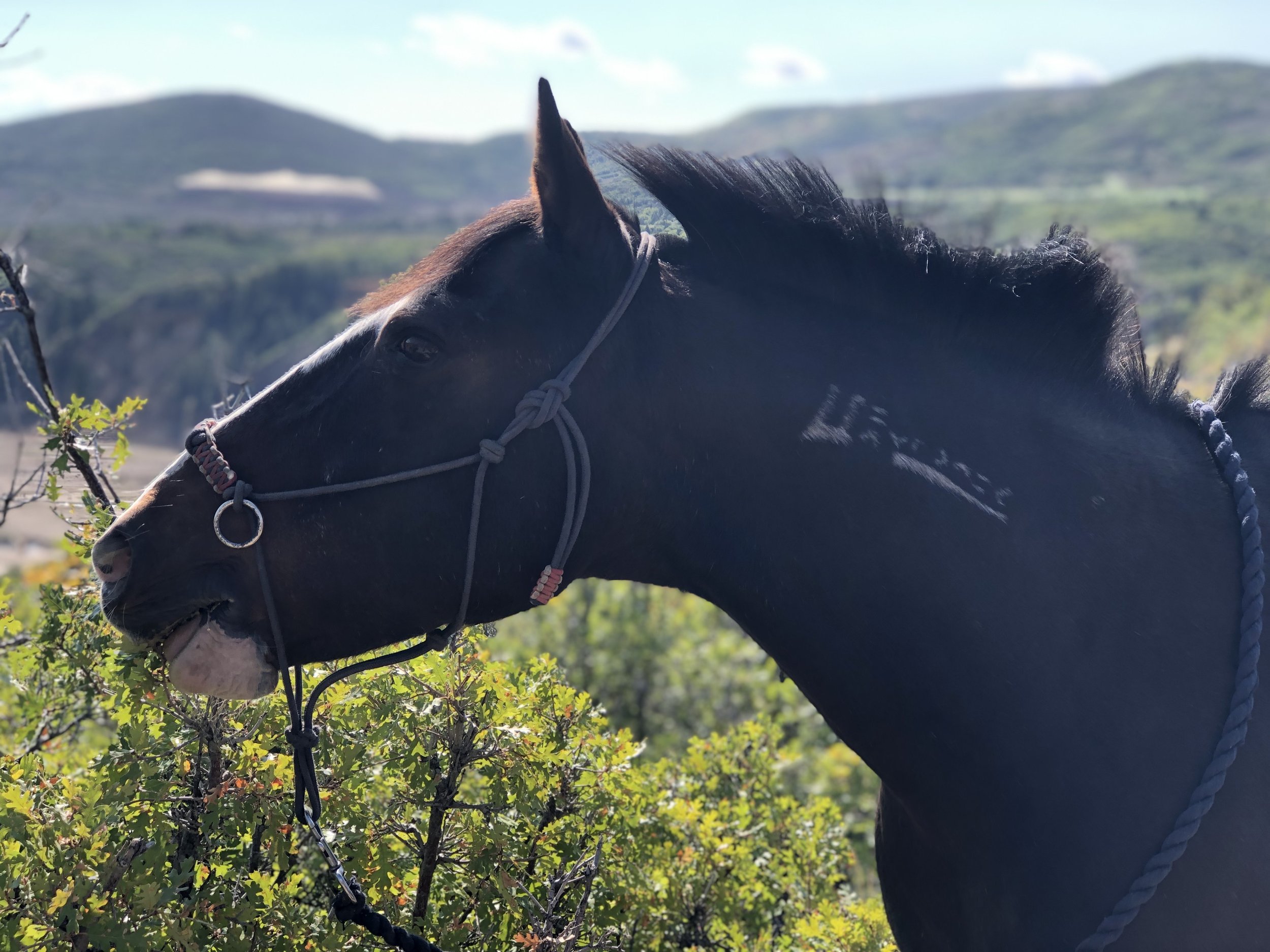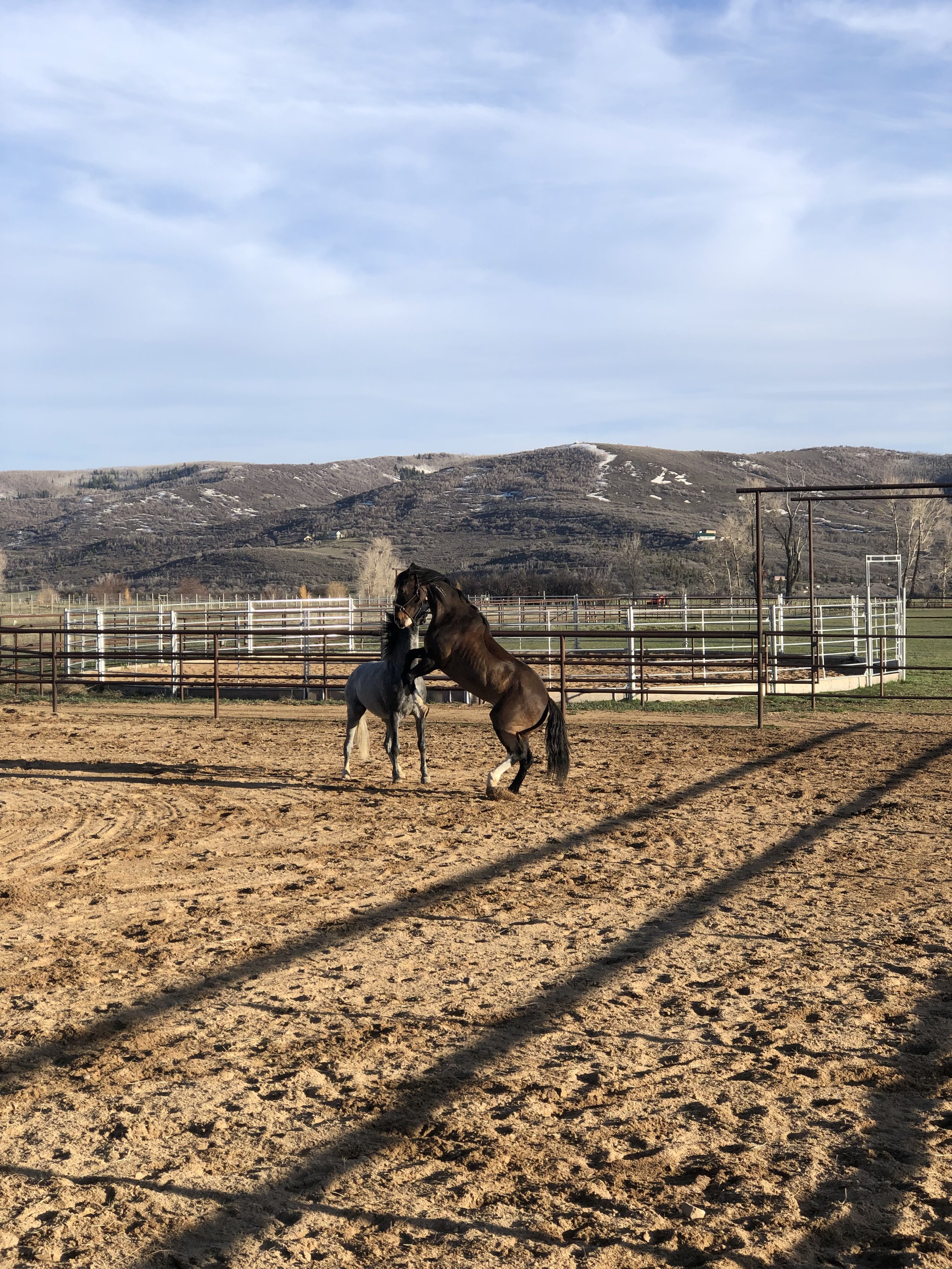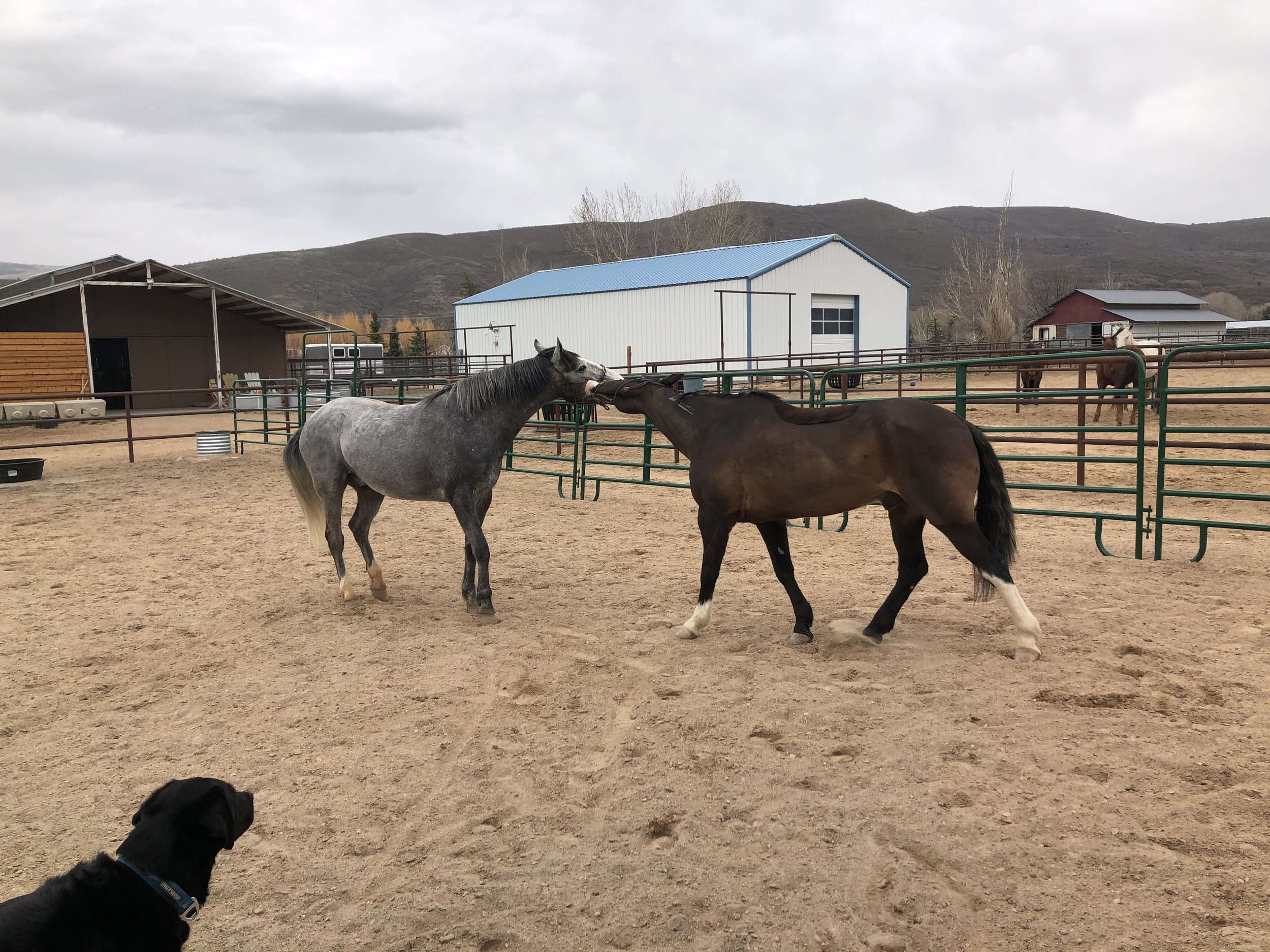Little is known about equine sleep patterns, but they appear to take several forms.
In the equine veterinary field there is a traditional lack of concern with horses’ sleep and its impact on performance and its clinical outcome. Owners commonly seek help outside of veterinary or university sources because few answers or expertise exist. This is difficult to understand in light of the need for sleep’s essential, sustaining, recuperative physiology. There is no definitive explanation for the necessity or function of sleep in horses, or for that matter in most other species in which the need for sleep varies widely. Likely, it is a complex of metabolic and adaptive needs developed and dependent on the niche each species fills in nature.
Six Types of Sleep Deprivation in Horses
Pain or physical discomfort associated
This category includes horses that have been clearly diagnosed with painful conditions ranging from severe joint disease, polysaccharide storage myopathy, and other musculoskeletal diseases to gastric ulcers. Read More…
Environmental insecurity
associated
This category includes horses whose clinical signs resolve after caretakers or veterinarians identify and change environmental issues. Read More…
Monotony
associated
Horses in this group show signs only when placed in cross-ties long-term or forced to stand quietly for prolonged periods. Read More…
Aggression displacement associated
Horses that show excessive and continuous aggression toward one or all horses in a group fall into this category. Read More…
Lyme disease
associated
Horses testing positive for Lyme disease without fitting under any other category are in this group. They do not show evidence of joint pain, and they respond to Lyme disease therapy. Read More…
Sleep terror
associated
This category includes horses with behavior resembling sleep terror behavior in humans. This is a relatively new finding, with all cases identified since January 2012. Read More…

If you or your veterinary professional feel that your horse is being plagued by a sleep disorder, you have come to the right place. Dr. Bertone is a world-renowned equine sleep disorder specialist. His passion lies in detecting the problem and creating a path towards health and wellness for your equine. Dr. Bertone can service clients through their own secure portal. By answering Dr. Bertone’s specific questions and providing video of your horse, Dr. Bertone can pinpoint the cause of sleep deprivation and provide a clear analysis for you and your veterinarian.
SERVICES
Sleep Evaluation
The first step to unlocking your equine’s sleep disorder is a personalized consultation by Dr. Bertone. You will be required to provide specifics about your horse along with a video diary. Couple your sleep evaluation with a balanced nutrition and rehabilitation plan for your horse tailored to your needs.
Nutrition
The health of your equine is dependent on good nutrition as well as physical fitness. Dr. Bertone can assess your horses current feed plan and recommend a balanced, holistic program for your horse for optimum health.
Physical Health
Coupled with a diagnosis of your horses sleep disorder, it is important that your horse has a balanced training and rehabilitation program. Dr. Bertone will walk you through the best plan for your equine partner to put the best hoof forward.
Customized Plans
If you feel as if your equine has more specific issues related to their sleep pattern or other issues arise while assessing the health of your horse, Dr. Bertone can create a customized plan specific to your horse’s needs.
“I didn’t think twice about sleep being a factor in my horses overall health and performance. After working with Dr. Bertone, not only have I seen a dramatic difference in my horses mental wellness, but we have unlocked a whole new level to our training and competing.”
— Meghan B.






